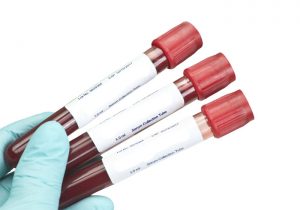
Five Things You Should Know about Herpes
ASHA answers many questions from the public about STIs, including about genital herpes. Here we offer five things to know about how to manage this common infection.
If a woman with genital herpes has virus present in the birth canal during delivery, herpes simplex virus (HSV) can be spread to an infant, causing neonatal herpes, a serious and sometimes fatal condition. Neonatal herpes can cause an overwhelming infection resulting in lasting damage to the central nervous system, mental retardation, or death. Medication, if given early, may help prevent or reduce lasting damage, but even with antiviral medication, this infection has serious consequences for most infected infants.
While neonatal herpes is a serious condition, it is also very rare. Less than 0.1% of babies born in the United States each year get neonatal herpes. By contrast, some 20-25% of pregnant women have genital herpes. This means that most women with genital herpes give birth to healthy babies.
Babies are most at risk for neonatal herpes if the mother contracts genital herpes late in pregnancy. This is because a newly infected mother does not have antibodies against the virus, so there is no natural protection for the baby during birth. In addition, a new herpes infection is frequently active, so there is an increased possibility the virus will be present in the birth canal during delivery.
Women who have genital herpes before they become pregnant have a very low risk of transmitting the virus to their babies. This is because their immune systems make antibodies that are temporarily passed to the baby through the placenta. Even if herpes is active in the birth canal during delivery, the antibodies help protect the baby. In addition, if a mother knows she has genital herpes, her doctor or midwife can take steps to protect the baby.
Herpes can also be spread to the baby in the first weeks of life if he or she is kissed by someone with an active cold sore (oral herpes). In rare instances, herpes may be spread by touch, if someone touches an active cold sore and then immediately touches the baby. Again, simple precautions can be taken to protect an infant from this type of exposure. To protect your baby, don’t kiss him or her when you have a cold sore, and ask others not to. If you have a cold sore, wash your hands before touching the baby.
If you’re pregnant and you have genital herpes, you may be concerned about the risk of spreading the infection to your baby. Be reassured that the risk is extremely small—especially if you have had herpes for some time. The following steps can help make the risk even smaller:
Remember, the odds are strongly in favor of your having a healthy baby.
Many women wonder about taking antiviral medication during pregnancy to suppress outbreaks in the third trimester. The U.S. Food and Drug Administration (FDA) has approved no drug against herpes for this purpose. Nonetheless, acyclovir is used by some physicians to treat women with genital herpes at the end of pregnancy. Small studies suggest that acyclovir taken daily during the last month of pregnancy will prevent recurrences and, therefore, decrease the need for Cesarean sections, but some experts remain concerned about the safety of fetal exposure to the medication.
At the present time, acyclovir’s manufacturer does not recommend its use during pregnancy. On the other hand, the company has tracked the experiences of several hundred women who took the drug during pregnancy, some of them inadvertently, and the evidence to date suggests that acyclovir does not carry increased risk of birth defects or adverse pregnancy outcome. On the strength of this data, the use of daily, suppressive treatment during the last month of pregnancy is becoming increasingly common.
The greatest risk of neonatal herpes is to babies whose mothers contract a genital infection late in pregnancy. While this is a rare occurrence, it does happen, and can cause a serious, even life-threatening, illness for the baby. The best way you can protect your baby is to know the facts about HSV and how to protect yourself. The first step may be finding out whether you already carry the virus.
You can talk to your healthcare provider about testing for genital herpes. If you test negative for genital herpes, but your partner has genital or oral herpes, you may acquire it unless you take steps to prevent transmission. The following steps can help protect you from getting an infection during pregnancy:
CNN and other outlets have run articles on a paper linking high levels of antibody to herpes simplex virus type 2 (HSV-2, the main cause of genital herpes) in pregnant women with an increased risk their baby will later be found to have autism. The authors of the paper believe the potential link isn’t that the virus interacts directly with the fetus, but could be due to an inflammatory response HSV-2 causes in the mother that may ultimately interfere with the development of the baby’s nervous system.
The response to these findings has been mixed with several leading experts (including ASHA’s medical and scientific advisors) believing many unanswered questions remain and agreeing that much more research would be needed to validate these results.
“Women who have HSV-2 and who are pregnant, or planning pregnancy, should not be alarmed by this study” says Anna Wald, MD, MPH of the University of Washington. “While we need to continue to investigate the reasons for autism, I am not convinced by this study that there is a link between antibody levels to HSV in mid-pregnancy and the risk of autism.”
Bottom line: most pregnant women with HSV-2 have normal pregnancies and deliver healthy babies. Many HSV researchers and clinical experts aren’t overly concerned by these findings and don’t think women should be, either. As always, talk to your health care provider if you have questions. You can read more about herpes and pregnancy from the University of Washington Virology Research Clinic.

ASHA answers many questions from the public about STIs, including about genital herpes. Here we offer five things to know about how to manage this common infection.

The best way for couples to deal with herpes is to talk about it openly and make decisions together. So what’s the best way to start the conversation?

Is that sore or rash actually genital herpes? Can you tell by just looking? Can a healthcare provider? No! When it comes to diagnosing genital herpes, it takes more than a look.

A paper published ahead of print in Sexually Transmitted Diseases finds that commercial blood tests commonly used to diagnose herpes simplex virus (HSV) are frequently not reliable, especially in those with “low positive” results.

Most people with herpes won’t experience symptoms, but knowing what to look for can make you more aware.

While there is no cure for herpes simplex virus (HSV) infections, there are various treatment options available that can help manage symptoms and control outbreaks.
ASHA believes that all people have the right to the information and services that will help them to have optimum sexual health. We envision a time when stigma is no longer associated with sexual health and our nation is united in its belief that sexuality is a normal, healthy, and positive aspect of human life.
ABOUT
GET INVOLVED
ASHA WEBSITES
GET HELP
© 2025 American Sexual Health Association